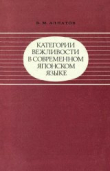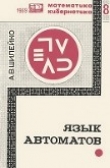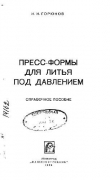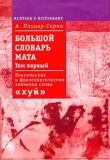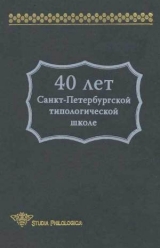
Текст книги "40 лет Санкт-Петербургской типологической школе"
Автор книги: В. Храковский
Соавторы: С. Дмитренко,А. Мальчуков
сообщить о нарушении
Текущая страница: 7 (всего у книги 31 страниц)
Z. Guentchtéva
Remarks on the interaction between voice and aspect in the slavic domain
Although a number of authors have drawn attention to the correlations between voice/diathesis and aspect [Comrie 1976, 1981; Haspeimath 1994; Siewierska 1984, 1988], apart from an in depth analysis of Russian [Knjazev 1986, 1988; Khrakovskij 1991; Poupynin 1991, 1996, 1999], few linguists have studied the specific interaction of voice and aspect in the Slavic domain.
This paper will not present new data on Slavic languages, but aims at highlighting some correlations between aspect and voice (particularly the passive voice), and at pointing out some leads for an analysis of their interaction. I shall attempt to clarify several points by analysing certain examples where context is important to the semantic interpretation:
1. the reflexive passive voice usually expresses a process (present, iterative or habitual according to context) or an event and encodes a potential/generic agent (explicit or implicit);
2. the periphrastic passive voice having a perfective participle usually expresses a resulting state with stative or dynamic meaning according to the context, whereas an imperfective participle expresses either a process or a complex state, represented as an open class of events.
The analysis of genuine corpora and a thorough study of the Slavic lexicon should help circumscribe the distribution of forms and the meanings encoded in such forms.
1. The structure to be + participle with – n/-t
Diachronically, it is well known that the passive past participle is based on the Indo-European adjective with *-to or *-no, which was originally attached to a root or to a nominal stem. Therefore, these forms were initially independent of the verbal system and served to indicate «a state resulting from the possession of the notion indicated by the noun or of the process expressed by the root» [Meillet 1965: 268]. Their integration into the verbal system is therefore an innovation in Indo-European languages. Concerning the earliest period of common Slavic, forms with *-to or *-no are no longer nominal derivatives but participles, by virtue of their integration in the verbal system. This is why constructions with an – n/ -tparticiple and the auxiliary «to be» first functioned as denoting a state, their actional meaning only appearing later [Maslov 1988: 77].
It is therefore unsurprising that in Slavic languages the interrelation of constructions with – n/-t is organised around a stative reference which, depending on several factors, may or may not imply a preceding event. In fact, certain constructions are conceived as purely stative for two raisons:
1. the participles may sporadically acquire this meaning because, diachronically, they are linked to a root or a nominal theme or because they are semantically removed from the verb (in this case, Khrakovskij [1991:151] speaks of lexicalisation):
Russian
(1) Bolšaja čast ee territorii byla pokry-t-a
great part its territory.GEN was cover.PF-PPP-SG.F
lesami
forest.INSTR.PL
«The greater part of its territory was covered with forest».
Polish (quoted by [Siewirska 1988:253])
(2) Straty są spowodowanedlugotrwalą suszą
losses are cause.PF.PPP long.term.INSTR drought.INSTR
«The losses have been caused by a long term drought»;
2. the verbs are polysemic and the participles are used in their true sense (3a) or may take on psychological connotations (3b):
Bulgarian
(3a) Lodkata beše privărzana do našata ograda
boat.the be.IMPF attach.PF-PPP.SG.F beside our.the gate
«The boat was attached to our gate».
(3b) Deteto e privărzano kăm majka
child.the be-PRES attach.PF-PPP.SG.NEUTER to mother si
REFL.DAT
«The child is attached to his mother».
Only (3a) is open to discussion because, out of context, it may be analyzed either as an objective resultative, as defined by Nedjalkov and Jaxontov [Nedjalkov, Jaxontov 1988: 9] [18]18
V. Nedjalkov and S. Jaxontov [1988: 6] define the notion of resultative in the following way: «The term resultative is applied to those verb forms that express a state implying a previous event». In the case of objective resultative, the underlying subject of the state is co-referential with the underlying object of the previous action [ibid.: 9].
[Закрыть], or as a passive form, because the perfective participle is bound to the base verb privăr-zvam/privărza «to tie/attach» and the meaning of the construction is thus linked to transitivity and passivization (4a). But this perfective participle is mostly used in a psychological sense (3b) and it is thus semantically bound to the reflexive intransitive verb privărzvam se/privărza se and to (4b):
(4a) Toj privărza lodkata do našata ograda
he attach.PF-AOR-3 SG boat.the beside our.the gate'
He attached the boat beside our gate'.
(4b) Deteto se privărza kăm mene
child.the REFL attach.PF-AOR-3SG to me.DAT
«The child is attached to me».
The literature provides many examples in which the constructions «to be» + – n/-t participles are used with a purely adjectival meaning. They then predicate a property of the entity in the same manner as an adjective:
Bulgarian
(5) Š inelite bjaxa tănki i iznoseni, kepetata
coats.the were light.PL and wom.out.PF.PPP.PL kepi.the izpomačkani…
wrink.PF.PPP.PL
«The coats were thin and worn, the kepis (were) wrinkled…».
Removed from any context, one may consider iznoseni «worn-out» and izpomačkani «wrinkled» as resultative participles, since they may be associated with transitive verbs and allow the characterisation of the objects «coats» and «kepis» as affected and changed by a preceding event, but the coordination of the adjective tănki«light» leads to the elimination of the resultative interpretation in favour of an adjectival interpretation. Therefore (5) denotes a state. Syntactically, the construction is predicative for the two following reasons: 1. «to be» does not function as a voice auxiliary because it operates on the past passive participle as it operates on the coordinated adjective tănki«light»; 2. the past passive participle fills the syntactic function of an attribute, and, being a verbal adjective, cannot be treated as a participle oriented toward the patient of the basic transitive verb. More complex is the following Bulgarian example (quoted by [Barakova 1980: 141]):
(6a) Njakoi ot lozjata bjaxa veče obrani i
some of vines be.IMPF.3PL already pick.PF.PPP.PL and pusti
empty.PL
Lit.«Some vineyards were already harvested and deserted».
If one admits that the form bjaxa obrani «were harvested» is resultative because it is formally derived from the verb obiram/obera «harvest, pick fruit» and because it implies a resulting state evidenced by the adverb vece «already», it would be difficult to explain the occurrence of the coordinated adjective pusti «empty». Just as in example (5), the participle is part of the paradigm of adjectives and the utterance denotes a state. As a result, it is impossible to give it either a corresponding active counterpart (6b) or to introduce an agent (6c):
(6b) *Xorata bjaxa veče obrali lozjata i
people.the be.IMPF.3PL already pick.PF.APP.PL vines and pustiempty.PL
Lit.«The people had already picked the grapes and deserted».
(6c) Njakoi ot lozjata bjaxa veče obrani i pusti
some of vines.the were already pick.PF.PPP.PL and empty.PL
*(ot studentite)
*(by the students)
«Some vines were already stripped and deserted».
This analysis shows that the double interpretation which may be assigned to a construction depends on the discursive context. Let us compare the following utterances:
Bulgarian (quoted by [Maslov1988: 77])
(7a) Kolata e sčup-en-a / poprav-en-a
cart.the is break.PF-PPP-SG.F repair.PF-PPP-SG.F
«The cart is broken/repaired».
(7b) Toj vidja kolata i razbra, če e
he saw cart.the and understand.PF.AOR that is
sčup-en-a
break.PF-PPP-SG.F (7c) Toj vidja kolata i razbra, če e
He saw cart.the and understand.PF.AOR that is
sčup-en-ai posle poprav-en-a
break.PF-PPP.SG.F and later repair.PF-PPP-SG.F
«He saw the cart and understood that it had been broken and later repaired».
From the preceding examples, it is clear that the aspectual properties of the participle can change according to the construction. Examples (7a) and (7b) are of the descriptive type and code the state of the entity. As in (6a), the participle behaves like an adjective, but of verbal nature, and which with the auxiliary constitutes a syntactic predicate. Thus, it seems difficult to speak of the «orientation» of a participle. On the other hand, (7c) belongs to the domain of passivisation, even though the agent is not specified: the participle is oriented toward the patient of the basic transitive verb. The comparison between examples (7b) et (7c) merits special attention as it shows how the adjunction of a coordinated participle (popravena «(is) repaired») leads to the transformation, as noted by Maslov [1988: 77], of the stative meaning of the completive če e sčupena that we identified in (5a) as «an actional passive perfect» («had been broken and repaired»). Thus, the auxiliary transforms the resultative participle into a verbal unit (a passive verb) which functions as a one-place predicate [Desclés & Guentcéva 1993: 91].
If this type of syntactic condition is not limited to Russian, as Maslov [19]19
In Bulgarian, unlike Russian, the corresponding form also occurs in cases where the state, a direct outcome of an action, is obliterated by a subsequent action [Maslov 1988: 77].
[Закрыть]affirmed, the data show that the interpretation of a given construction with – n/ -tis always context dependant. This can be illustrated with two Russian examples borrowed from [Knjazev 1988:344]:
(8a) My dvaždyj prošli mimo levogo bašennogo kryla zamka….
Vpervyj raz okna byli zakry-t-y.
windows were close.PF-PPP-PL
«We passed twice by the left tower wing of the castle. The first time the windows were shut».
(8b) Rita noč'ju zatejala ssoru: trebovala zakryt' okno….
Takprepiralis' dolgo, i Rita, razumeetsja, vzjala verx:
okno bylo zakry-t-o.
window was close.PF-PPP-SG.NEUTER
«At night Rita began a quarrel insisting that the window should be shut. They carried on for a long time and it was Rita who had the upper hand: the window was shut».
According to Knjazev, in (8a) the construction okna byli zakryty «the windows were shut» is an objective resultative, whereas in (8b) the construction okno bylo zakryto «the window was shut» is an actional passive. In other words, the construction in (8a) has the meaning of a state and implies: a) on the semantic level, one participant only about which a contingent property is predicated through the past passive participle; b) on the syntactic level, the structure is of the predicative type where the predicate, even though it has the form of a past passive participle, has the status of an adjectival determiner. On the other hand, the construction in (8b) has the meaning of a resultative state having, on the semantic level, three characteristics [DesclSs & GuentcMva 1993: 91]: 1. it implies a preceding event and the existence of an agent (specified or not); 2. it determines a property of the patient; 3. the property is not necessarily contingent upon the implied preceding event. On the syntactic level, the auxiliary operates on the past passive participle, associated with an abstract passive predicate which includes the notion of an unspecified agent, in view of its transformation into a verbal unit [ibid].
The resultative state, which I have just defined, must not be confused with the resultant state. Indeed, in languages such as Bulgarian, where there is an overt expression of the perfect (9b) and of a periphrastic passive (9a), these two notions are clearly distinguished:
(9a) Otvori čekmedžeto i razbra: parite
open.PF.AOR drawer.the and understand.PF-AOR money.PL bjaxa otkradnati.
was steal.PF.PPP
«He opened the drawer and understood: the money had been stolen».
(9b) Otvori čekmedžeto i razbra: bjaxa
open.PF-AOR drawer.the and understand.PF.AOR were
otkradnali parite
steal.PF.APP.PL money.PL
«He opened the drawer and understood: someone had stolen the money».
Although these two forms may appear in the same context, each has its own meaning: (9a) denotes a resultative state as defined above; it permits therefore to draw attention to the patient and to the characteristic which is attributed to it by the passive predicate; if the verbal form is a reminder of the implied event, it is in order to signify that at its origin is an agent. On the contrary, (9b) is an overt expression of the perfect; it denotes a resultant state: that is, a state which is brought about by an event and which is contiguous to this event.
2. On the «actional» meaning of constructions with – n/ -t
It has often been pointed out that the periphrastic passive tends to be constructed with a perfective past participle, whereas the reflexive passive tends to use the imperfective form. On this subject Siewierska [1988: 247] notes that in Slavic languages, with the exception of Polish, the periphrastic passive including an imperfective participle rarely appears, and quotes Czech and Serbo-Croatian where the constructions are said to be used mainly in scientific texts. This affirmation is not wholly justified. In Russian, the contrast is not any clearer: the constructions with an imperfective past passive participle are sporadically attested [Maslov 1988; Poupynin 1996: 131] and are subject to strong lexical, syntactic and contextual constraints; they are allowed in varying degrees in Czech, Serbo-Croatian, Polish, and above all Bulgarian.
The «be»-perfective passive is claimed to convey both the meaning of a state resulting from a previous action and that of an action. The main argument for justifying such an analysis comes from a distributional property of the form, founded upon the compatibility of the perfective form with localisation markers. According to Khra-kovskij [1991; 151–154] and Knjazev [1988:350–351], the actional passive is compatible with time adverbials and adverbial phrases which are precise indications of the temporal interval relative to the preceding event and place markers ((10), (11)) whereas the resultative state is compatible with those which mark duration (12) or iterativity.
Bulgarian
(10) Navremeto toj bil izpraten ot vujčo si<…> da
at time.the he was send.PPP.SG.M of uncle REFL.DAT DA
sledvav Moskva
study.PRES-3SG in Moscow
«At that time, he was sent by his uncle to study in Moscow».
Russian (quoted by [Knjazev 1988: 351])
(11) Vsesteny, bojnicy, kryšy,<…> v sčitannye sekundy byliall walls loop.holes roofs in count.PF.PPP seconds were zapolneny soldatami i kazakami
occupy.PF.PPP soldiers.INSTR and Cossacks.INSTR
«Within a few seconds all the walls, loop-holes, roofs, minaret balconies and even the dome of the mosque had been occupied by soldiers and Cossacks».
(12) Vsego 45 minut by I vključe-n teleskop,
in total 45 minutes was switch.on.PF-PPP telescope
a podgotovka к eksperimentu potrebovala vos'mi časov.
«It was only for 45 minutes that the telescope was switched on, whereas the preparation for the experiment had taken about eight hours».
It is well known that Polish is the only Slavic language which has two auxiliaries to form the periphrastic passive voice: the zostać passive which imposes a perfective participle and whose meaning is characterised as «actional», and the «be»-passive, which allows both the perfective participle and the imperfective and which, depending on the context, may take on either a so-called stative meaning or a so-called actional meaning:
(13a) Pokój został pomałowanyw zeszłym roku/ *dva razy
room became paint.PF.PPP.SG.M in last year/ two times
«The room was painted last year».
(13b) *Pokój został małowany w zeszłym roku
room became paint.IMPF.PPP.SG.M in last year
(13c) Pokój bił pomałowanyw zeszłym roku / dvarazy
room was paint.PF.PPP.SG.M in last year / two times
«The room was only painted last year» / «The room was painted last year twice».
(13d) Pokój bił małowany w zeszłym roku
room was paint.IMPF.PPP.SG.M in last year
«The room was painted last year».
Siewierska [1984: 129, 1988: 251] notes that recourse to (13c) implies that the room needs repainting, whereas (13a) does not. If one admits that the passive resultative state determines a property of the patient while at the same time implying a preceding event, and if one takes into account the meaning of zostać «to become», one easily understands that such inferences may be made. Zostać directly links the resultative state to the event serving to highlight the transitional character of the event and to state that the patient's property has been acquired prior to the act of speaking; the adverbial expression is therefore taken as included in the transitional event, which would explain why the periphrastic construction with zostać is incompatible with dva razy «two times», mnogo raz «many times», etc. On the other hand, the «be»-passive with a perfective verb gives priority to the resultative state by only referring to the implied event, leading to ambiguity as to whether the resultative state belongs to the patient (meaning a resultative state) or whether the resultative state only serves to hark back to the event at the origin of the patient's affectation. The adverbial phrase in (13a) is presented as incident to the event, which allows one to understand why iteration is permitted.
The contrast we have just evidenced between these two types of constructions clearly appears in the following two examples, in which the adverbial phrase denoting duration is only allowed in the «be» – passive:
Polish
(14a) Pies pzrez cała noc byl uwiązany na łańcuchu
dog through all night was attach.PF.PPP.SG.M on chain
«All night long the dog was (stayed) attached to a chain».
(14b) Pies zostal uwiązany na łańcuchu
dog became attach.PF.PPP.SG.M on chain
«The dog was attached to the chain».
(15a) Nieprzyjaciel jest pokonany
enemy is defeatPF.PPP.SG.M
«The enemy happens to be/is defeated».
(15b) Nieprzyjaciel został pokonany
enemy became defeatPF.PPP.SG.M
«The enemy was defeated» (lit. became defeated).
Let's go back to examples (13). The comparison between (13c) and (13d) reveals another meaning held by the «be» – passive. Only (13d) allows one to consider the situation as a statement about a general resultative state based upon a process which was simply accomplished in the past; it does not allow the iterative meaning possible in (13c). I shall come back to this point with examples taken from Bulgarian.
The classic Russian example dom postroen , which can be transposed into other Slavic languages (Bulgarian, Polish, Czech or Serbo-Croatian), will allow us to show how the distribution of the participial form is partly governed by the opposition between a stative situation and a dynamic situation and partly by the notion of completion, which is conveyed exclusively by the perfective form:
Russian
(16a) Dom postroen iz kirpiča
house.NOM built.PF.PPP.SG.M of brick.GEN
«The house is made of brick».
(16b) Dom *(do six por) postroen iz kirpiča
house.NOM (until now) built.PF.PPP.SG.M of brick.GEN
Lit.«The house is still built of brick».
(16c) Bol'šinstvo domov do six por postroe-n-o
most house.GEN.PL until.now built.PF-PPP-SG.NEUTER
iz kirpiča
of brick.GEN
«Most houses are still made of bricks».
(16d) Dom postroen v prošlom godu
house built.PF.PPP.SG.M in past year
«The house was built last year».
In spite of the form postroen «built», which one can consider resultative because of its derivational history, (16a) denotes a permanent state through the specification of a property attributed to the entity (iz kirpiča «of brick»). The construction therefore enters into the adjectival paradigm as confirmed by the adverbials of duration test in (16b). To explain the grammaticality of (16b), following Knjazev [1988: 351] advances the argument that adverbials of duration are incompatible with resultatives denoting irreversible states, but that these adverbials may appear with resultatives «under special conditions» as for example in (16c) where the subject would be plural. Let us note however that the grammaticality of (16c) evidences the interesting problem of the interaction between quantification and aspect which deserves more study. The comparison between (16a) and (16d) shows that the occurrence of the temporal expression allows one to retrieve the event which is at the origin of the resultative state: (16b) is the expression of an actional perfect passive [Maslov 1988: 66].
As mentioned earlier on the subject of Polish, the «be» – passive may be constructed with an imperfective participle; if the verb has an imperfective derivative, two constructions are possible:
Bulgarian
(17a) Trevata e/ beše okosena *(mnogo păti)
grass.the is/was mow.PF.PPP.SG.F (many times)
(ot studentite)
(by students.the)
«The grass was mowed» (by the students).
(17b) Trevata e/ beše kosena ( mnogo păti)
grass.the is/was mow.IMPF.PPP.SG.F (many times)
(ot studentite)
(by students.the)
«The grass has been mowed» (many times) (by the students).
(17c) Trevata e/beše okosjavana mnogo
grass.the is/was mow.IMPF.PPP.DERIVATE.SG.F many
păti/vsjaka godina (ot studentite)
times/every year (by students.the)
«The grass is/was mowed many times/every year (by the students)».
In (17a) the meaning is clealy that of a resultative state having its origin in a completed event. As opposed to (17a), in (17b) the resultative state has its origins in an interrupted event; the process is thereby highlighted and means «has been mowed (by someone)» or «has been mowed (by someone)»; Maslov terms this «actional passive present» and «actional passive perfect» respectively. However, according to the tense of the auxiliary and the discourse context, the resultative state may be related to past or future situations.
(18) Ništo za otbeljazvane, osven ednapodrobnost, kojato săšto ne eosobeno ljubopitna: sleden săm. Ne tvărde
follow.IMPF.PPP.SG.M am
nastojčivo i ne osobeno grubo, no săm sleden(B. Rajnov).
am follow.IMPF.PPP.SG.M
«Nothing to report except one detail which is not particularly strange: I'm being followed. Not really regularly, nor brutally, but I'm being followed».
(19) A xlabăt beše pečen<…> po starwhereas bread.the was cook.IMPF.PPP.SG.M according old bălgarski običaj
Bulgarian tradition
«Whereas the bread was baked <…> following some old Bulgarian tradition».
(20) Toj znaeše, če osemdeset dekaraniv<…> bjaxa
he knew that eighty acres fields were
kupuvaniobsto, no slučajnov prodavatelnija
buy.IMPF.PPP.PL in.common but by.chance in of.sale
akt bjaxa pisanisamo na imeto na Valčana.
act were write.IMPF.PPP.PL only at name.the of Valchana
«He knew that eighty acres of field <…> had been bought in common, but that, by pure chance, in the sale document, they had been registered under the sole name of Valchan».
With some merely interrupted processes, the construction becomes compatible with adverbs such as mnogo păti «many times» or često «often». The adverbial form is thus incidental to the event and leads to an iterative interpretation. In other words, in the iterative sense, the event is presented as an open class of events in which neither a first nor a last occurrence may be isolated and the resultative state refers to the general result of all these occurrences.
Going back to example (17c), the participle is derived from a secondary imperfective verbal base, and such forms demand an iterative context; the construction thereby denotes a resultative state which originates from an event presented as a closed class of events which has a first and a last occurrence, even though their number is not always specified.
Due to the verb prefix, each event included in the series is analysed as a completed process. The following two examples make apparent the opposition between this meaning (17a) and that of a resultative state (17b):
(21a) <…>ot dva i polovina veka knjažeskijat dom be
of two and half century of.prince.the house was
opožarjavanmnogo păăti
burn.IMPF.PPP.SG.M several times
«<…> over two and a half centuries the princely residence has been set on fire several times».
(21b) <…> knjažeskijat dom be opožaren predi dva i
of.prince.the house was bum.PF.PPP.PL before two and
polovina veka *mnogo păti
half century several times
«<…> two and a half centuries ago the princely residence was set on fire».
The other Slavic languages have apparently not developped such a mechanism. Yu. Maslov [1988: 79] points out a few scarce examples such as the following in Polish which does not seem to belong to a paradigm as do those in Bulgarian:
(22) Wqgiel jest wydobywa-n-y
coal is mine.IMPF-PPP-SG.M
«Coal is (being) mined»
Descriptions of Serbo-Croatian show the first two variations pointed out for Bulgarian: (23a) and (24a) refer to the resultative state of an accomplished and completed process; (23b) and (24b) refer to the resultative state of processes which is a simply accomplished, apparently barring iteration:
(23a) Travaje/bila pokošena( *seljakom)
grass is/was cut.PF.PPP.SG.F (peasant.INSTR)
«The grass has been cut».
(23b) Trava je košena jutros (*seljakom)
grass is cutlMPF.PPP.SG.F morning (peasant.INSTR)
«The grass is cut in the morning (by the peasants)».
(24a) Kuća je gradena dva mjeseca (*ljudimi)
house is build.IMPF.PPP.SG.F two months
«The building of the house lasted two months».
(24b) Kuća je/bila sagradena za dva mjeseca( *ljudimi)
house is/was build.PF.PPP.SG.F for two months
«The house was built in two months».
3. Reflexive constructions
In Russian, the constructions with – n/ -tare strongly related to aspect. As rightly stated by Poupynin [1990: 11], the periphrastic passive with an imperfective participle bears very specific aspectual meanings («aspectual particular meaning», [ibid: 131]), due to very specific conditions of syntactic order, lexicon and context. Being unable to convey the notion of process, which is specific to the passive reflexive, an utterance such as (25a) combines two semantic values according to the author [ibid.: 11—2]: that of experience («experiential action») and that of resultant state («resultant state»).
But the use of the reflexive perfective passive such as (25b), which is infrequent and often deemed familiar, is due to «its ability to express the so-called potential contextual meaning» of the perfective which is interpreted as a quality of the subject [Poupynin 1990: 11–12' 1996: 131]:
(25a )Koni byli kovarty tol'ko na perednie nogi
horses were shoe.IMPF.PPP.PL only on of.front legs'
The horses had shoes only on their front legs', (lit. the horses were only shod on their front legs) (A. N. Tolstoj).
(25b) Vaša kniga pročitaet-sja s
your.NOM book.NOM read.IMPF.PRES-REFL with
udovol'sviem
pleasure-INSTR
«Your book can be read with pleasure».
The meaning of passive process, i. e. one which occurs simultaneously with the speech act, may be conveyed by the reflexive passive. However, this meaning always appears in a marked context and usually has a generic interpretation:
Bulgarian
(26) Mašinite se remontiratv momenta
machines.the REFL repair.IMPF.PRES.3PL in momentthe
«The machines are being repaired right now».
While both passive constructions may be used with the same verb root, their aspectual meaning is different. Thus, in Bulgarian, for example, the construction with the perfective participle expresses a resultative state ((27a), (28a)) and stands in sharp contrast with the notion of event conveyed by the reflexive aorist passive ((27b), (28b)); whatever the lexical meaning of the verb, the aorist does not imply a resultative state.
Bulgarian
(27a) Vinoto beše izpito (ot tvoite prijateli)
wine.the was drink.PF.PPP.SG.NEUTER (by your.the friends)
«The wine was drunk by your friends».
(27b) Vinoto se izpi (ot tvoite prijateli)
wine.the REFL drmk.PF.AOR.3SG (byyour.the fnends)
«The wine was drunk by your friends».
(28a) Xljabăt beše izjaden s udovolsvie
bread.the was eat.PF.PPP.SG.M with pleasure
«The bread got eaten up with pleasure».
(28b) Xljabăt se izjade s udovolsvie
bread.the REFL eat.PF.A0R.3SG with pleasure
«The bread got eaten up with pleasure».
Those oppositions must be kept, as illustrated by such verbs as svarja «cook, boil». (29a) is more appropriately analysed as a construction in which the resultative participle functions as a predicate; (29b) in turn shows that the reflexive aorist denotes a completed process, i. e. an event:
(29a) Supata bešesvarena na fix ogăn
soup.theWas boil.PF.PPP on low fire
«The soup is being cooked over slow heat».
(29b) Supata se svari *(ot decata)
soup.the REFL boil.PF.AOR.3SG (by children)
«The soup is cooked»
In Serbo-Croatian, the aspectual difference is not very strong. Yet, (30a), unlike (30b), does not express a resultative state, but refers to an interrupted process bounded by the adverbial time limit «two months»:
(30a) Kuća se gradila dva mjeseca (*ljudimi)
house REFL built.PAST.3SG two months (people.INSTR)
«The house was built in two months».
(30b) Kuća jegradena dva mjeseca (*ljudimi)
house is built.IMPF.PPP two months (people.INSTR)
«The construction of the house lasted two months».
In the following example, the aspectual constraints are context sensitive; the context does not allow the use of the periphrastic passive, only the reflexive passive:
Bulgarian
(31) V kăsti nastana panika. Točexa se
happen.PF.AORsprea d dougb.[MPF.IMP REFL
banici, varjaxa se pileta, dve-tri kokoški s otsečeni
pastry boil.IMPF.IMP REFL chicken
glavi se vărgaljaxa sred dvora
REFL lie.IMPF.IMP
«Panic spread in the house. Pastry was being made, chickens were being boiled, two or three hens lay, with their heads cut, right in the middle of the yard».
In (31) the perfective aorist denotes an event. The three reflexive imperfects occur within the boundaries of this event: the first two točexa seand varjaxa seboth express iteration (an open class of events), the third se vărgaljaxarefers to a stative situation (a descriptive state). The iterative interpretation is selected by various factors: the presence of a perfective aorist, some nominal groups without any determination marker, the semantic properties of the verbs in the imperfect form.
I leave aside the impersonal reflexive passive constructions which imply various modal shades of meaning (32a) and the impersonal constructions with – no/ -to(neuter) participle associated with an intransitive verb (32b):
Bulgarian
(32a) Po trevata ne se xodi
on grass.the NEG REFL walk.PRES
«One doesn't walk on the grass».
(32b) Po trevata estxodeno
on grass.the is walk.IMPF.PPP
«One walked on the grass».
4. Conclusion
I have tried to show that the differences between the periphrastic passives and the reflexive passives is mostly aspectual; the use of the periphrastic passive is more constrained than that of the reflexive passive, since its value is based on the notion of resultative state. The interpretation of the periphrastic passive, as either a resultative state or a dynamic event, depends on various factors: 1. the aspectual properties of the participle (since it is derived from a verbal lexeme, the – n/ -tparticiple inherits the aspectual characteristics of the lexical type of the verb); 2. the temporal paramétré borne by the auxiliary; 3. the construction of the predicate; 4. the adverbial phrases licensed in the construction; 5. the discourse context of the utterance, by which the speaker may chose to highlight one of the possible representations of a referential situation.
